
Read Our Written Sermons
grounded in a mystical, interfaith-Christianity inspired by Emanuel Swedenborg
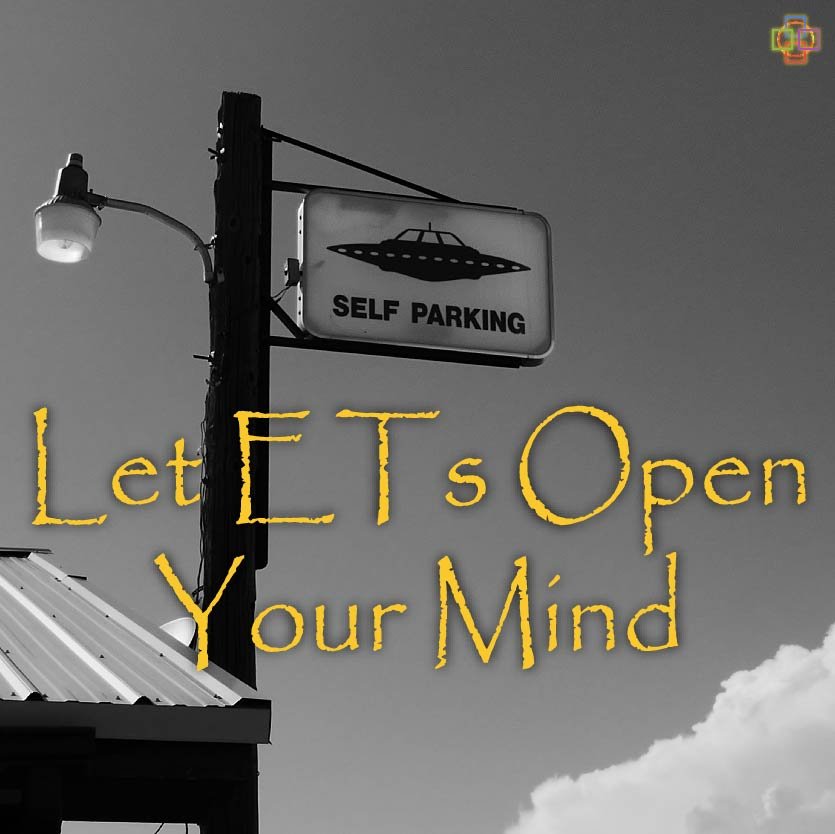
Let ETs Open Your Mind
There’s a lot of news lately about government disclosures of alien aircraft, or at least, what they are now calling unidentified aerial phenomena (UAPs). The US and others have started to share information about these strange objects, many of which move much quicker than our fastest planes and seem to defy the laws of physics as we know them. The idea of extraterrestrials can be an enlightening one because it can open us to a sense of infinity and wonder that we can sometimes lack in today’s modern world, one in which we strangely feel like we know just about everything. Confirmation of UFOs and perhaps even extraterrestrial visitors calls on us to question our sense of superiority, calls into question some of our belief systems, and in general, opens our minds to the infinite mystery around us that we often miss. Perhaps, this is why the great scientist turned mystic, Emanuel Swedenborg, wrote so much about ETs!
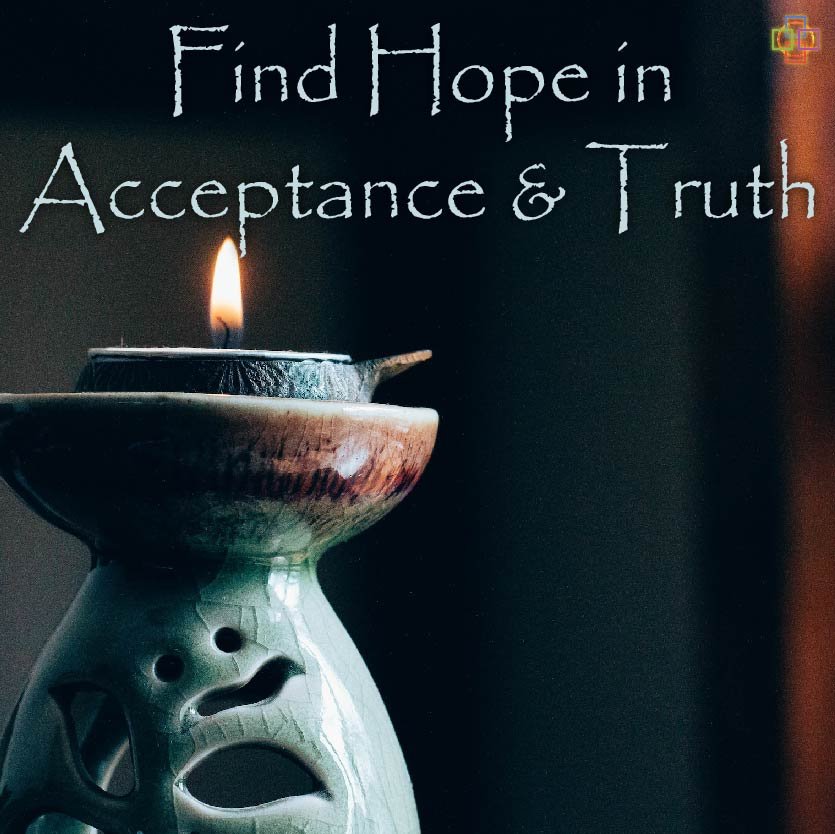
Find Hope in Acceptance and Truth
It can often feel like we’re hitting our heads against a wall when it comes to our spiritual growth. We strive to invite more of God’s light into our lives and yet it can seem like we go nowhere, that we’re not making any progress. A key cause of this feeling of stagnation may be in our inability to truly allow God’s light to shine throughout our inner environment. We expect God’s light to immediately transform our feelings and our thinking without us having to see ourselves and, even more importantly, accept what we find inside.
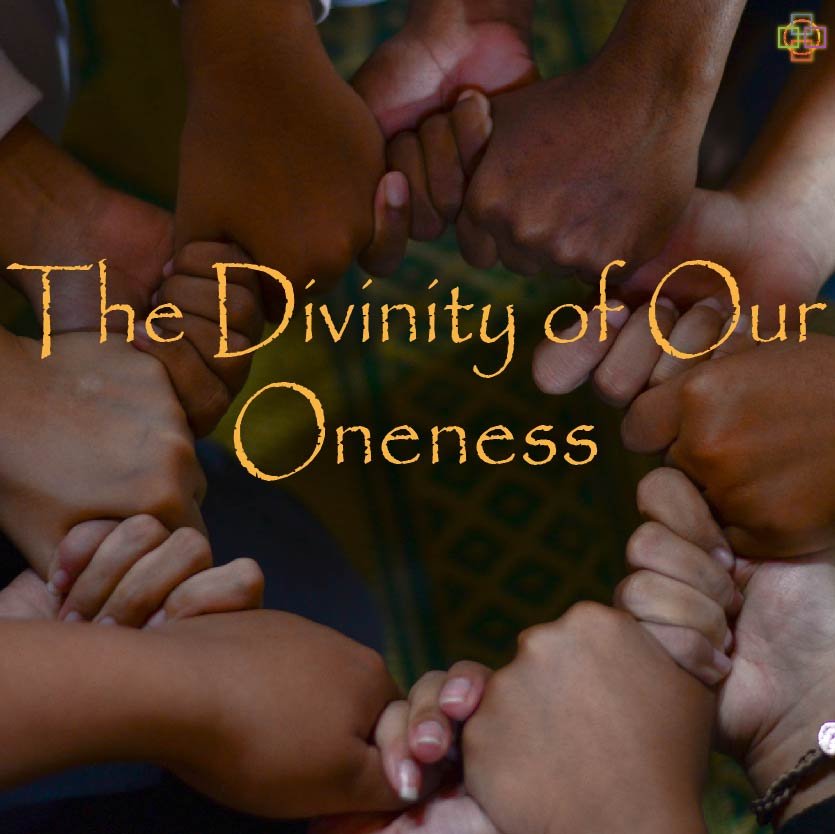
The Divinity of Our Oneness
It’s surprising to see how many times it says that people in Jesus’ community sought to “unalive” him (the new, TikTok-friendly term for murder). This was typically because Christ would speak about his perceived oneness with Divinity, the “Father.” In today’s reading alone it comes up twice and we’re only in John 10! What I find most captivating though is that when Christ quotes the Psalm where David (quoting God) calls those receiving God’s words “gods” multiple times, we see no immediate reaction, it is only when Jesus says outright, “I and the Father are one,” and “understand that the Father is in me, and I in the Father,” that they immediately try to kill him. There’s something about distorted religiosity in every religion that seeks to distance our unity with God, indeed it often carries an unaliving anger at the very idea. We might call God “the Compassionate,” as does Islam, but say that God shines as our compassion and be careful! Moreover, most of us tend to centre from an idea that we are distant from God, whether we think that actively or not, but this is a lie that we subtly carry that effectively blinds us to the reality of who we are and the life all around us (which can only truly shine in our shared consciousness, or so says quantum physics!).
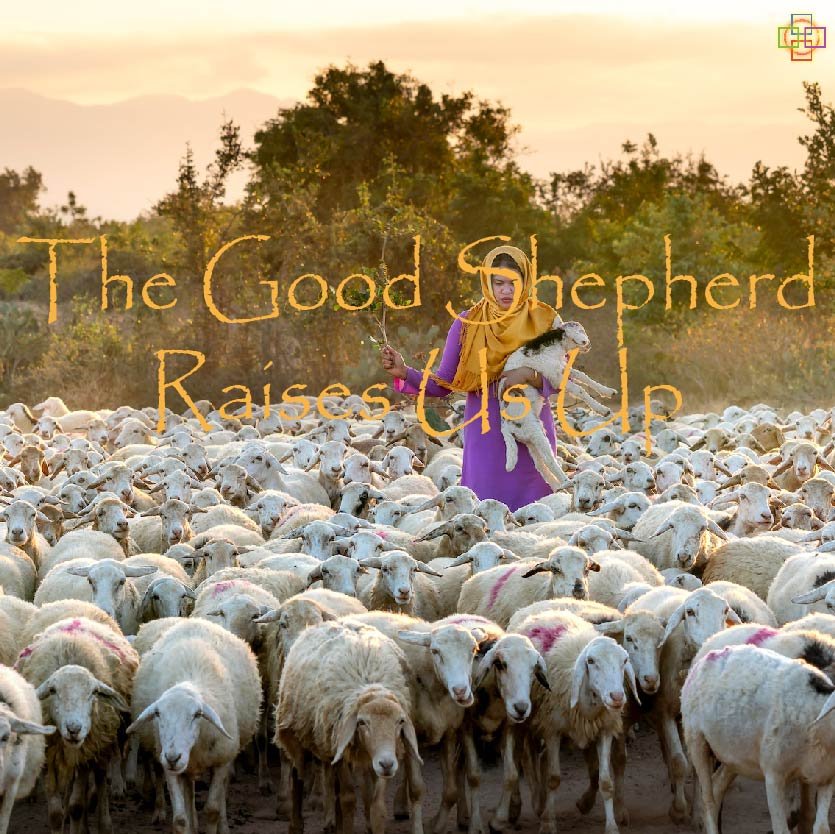
The Good Shepherd Raises Us Up
We all can feel lost at times. Not knowing what’s true or what to do. Even when things are going relatively well in our lives, we can feel despair and a sense of failure, inadequacy. We suffer from what we might call “modernitus,” or, more accurately, “separatitus,” because these challenges arise when we have not come to settle into the peace at our core, the unity we share within, what some call “Buddha,” “Goddess,” “Jesus.” The core beliefs of the modern world do not serve our spirit, beliefs about individual achievement, materialism, and what it means to be a civilized society. But the Divine Life that encircles us and is the light of our very consciousness beckons us back into the fold, back into harmony with nature and the earth, back into our rightful place led by our innate wisdom and divine love, sometimes called the Good Shepherd.
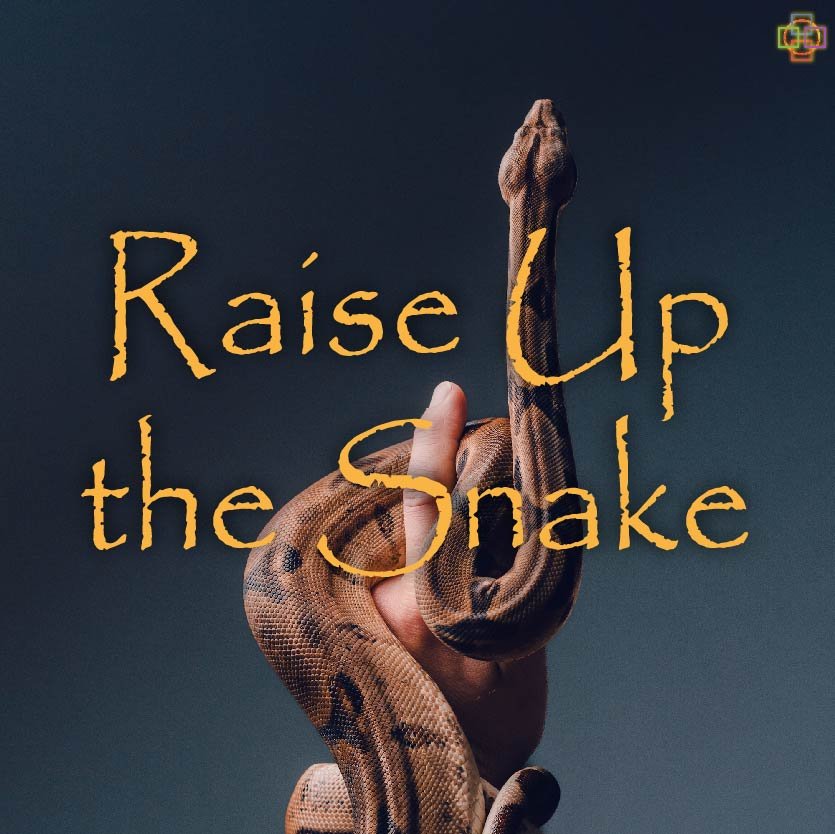
Raise Up the Snake
So, Jesus says that we must “lift up the Son of Man” and then we will know that Christ is he, serving the Lord. Cryptic, wouldn’t you say? How do we lift up the Son of Man before knowing that it’s Christ? The beauty of this statement is that it’s so obvious, and yet it can seem quite off-the-wall at the same time. Christ often talked about the Son of Man, but in negative terms, saying that the Son of Man has no place to lay his head and that he must undergo many trials. Typically, we would lay this term at Jesus’ feet, thinking that it has nothing to do with our own experience of trials and having no place to truly rest. And yet, here I believe we have Christ saying that we must lift up ourselves as the “Son of Man” before we can see what Christ truly is, a son of man raised up to be a Son of God.
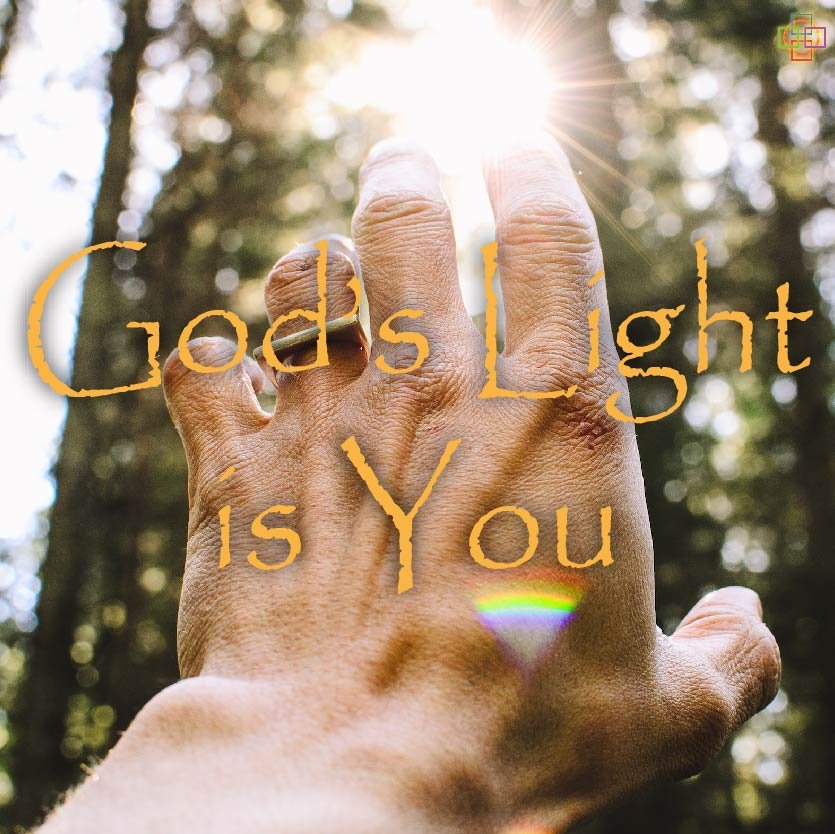
God’s Light is You
How do you define yourself? This is often the question at the root of many spiritual teachings as well as many mental health issues. We tend to think that our issues are our own, whereas in fact the roots of all our problems tend to stem from our histories with other people, genetics, family systems, social systems, economic systems, and many other things that only exist in a continuum with the universe itself. Tell me, could you have had that defining moment if gravity never existed, or the solar system, or a billion other things? The same goes for our good qualities, we think we are our intelligence and prowess when in fact it isn’t really something we had control over. Even if we feel like we worked for something, what were the root causes of being able and willing to work for it? In this way our idea of ourselves is just that, an idea, often confined by our social norms; “I am my body and what its done,” “I am my mind.” To find peace within ourselves, we have to come to identify with more of what we truly are.

The Bold Groundedness of God(dess)
I love how Jesus just straight up ignores the accusers of the woman in our reading from John 8, who they say has been caught committing adultery. It’s a bold move, and not one we see often in any of the world’s scriptures: God or a sage shrugging and literally ignoring someone’s condemnation of another to their face. It’s a funny scene, imagining him just stooping down to doodle (or whatever) on the ground as is described, essentially saying that doodling deserves more attention than this crowd’s attempts to discredit and murder another while also trying to entrap Christ in the process. He’s not dismissing the woman but the destructive nature of the crowd’s intent. And further, when he does respond, it is to point out that not one of them is better than her, saying that he himself also does not condemn her. That being done, and with the crowd dispersed, he then points out that she too isn’t living her best life and that she should move past her own destructive tendencies. He goes full circle in the boldness of his approach, continuing to centre on mercy and peace but also our need to reform our living so that we also can find oneness in Being.
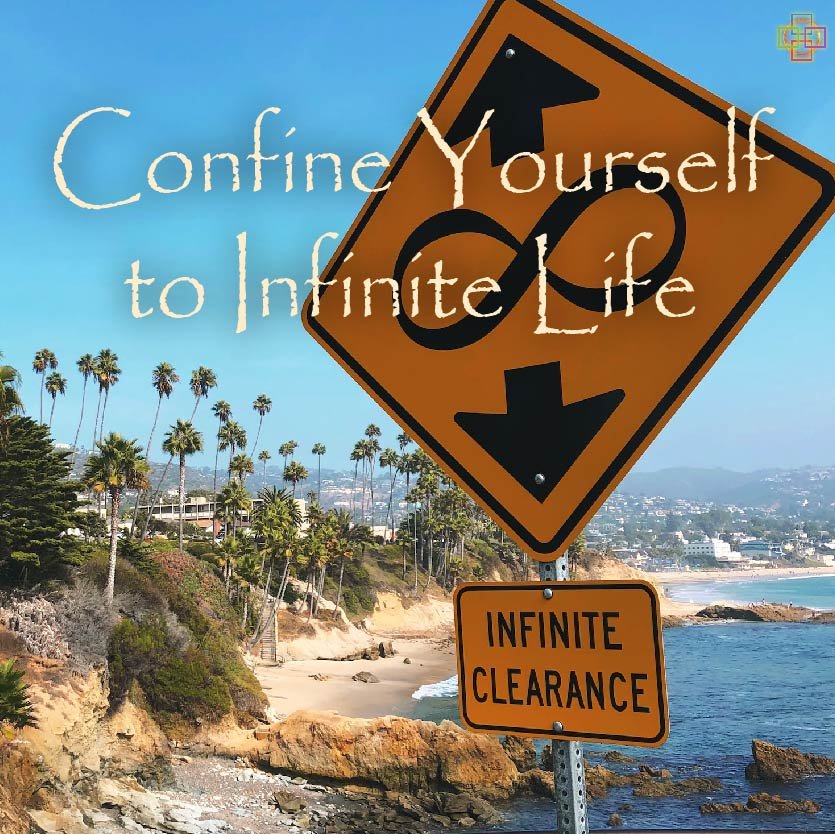
Confine Yourself to Infinite Life
Sometimes we think that accepting our current situation (or life’s “confines”) is a limiting proposal, but our sages tell us that our inner light already has the freedom and fulfillment that we are looking for. Therefore, finding it in our present situations opens our inner door, which opens our outer. Often, we are so caught up in how we want things to be, or this feeling of lack or that, that we never truly start to turn and enjoy the freedom of the naturalness of our spirit, one with the Spirit. Indeed, the Great Spirit is often misunderstood to be something distant from us, but as Christ tried to teach us (like Krishna, like the Buddha), God is within us, and we should remain in this infinity of God beyond words, instead of always “branching out” into false, stilted living. This means knowing ourselves as Christ knew our true selves and himself to be, as “the Way, the Truth, and the Life,” inherent in all things as the light of being, living, and consciousness.

Let the Divine Child Within Flow
Sometimes we forget that all our gifts and blessings flow from the God known by many names - even occasionally called “the universe.” In a way, we can think of every event as being conspired by the entirety of the universe, as all the preconditions and elements in the universe are dependent on each other directly or indirectly. If the universe did start as a “big bang” we can also think of every aspect of it being “entangled.” Moreover, our sages tell us that Divine Providence is inherent in every little thing, otherwise, it couldn’t direct the larger things. Further, when we come to believe in the reality of God’s nature within us and everything, as Christ said, “rivers of living water will flow from within [us].” To do this we have to open ourselves to the light of our inner child.
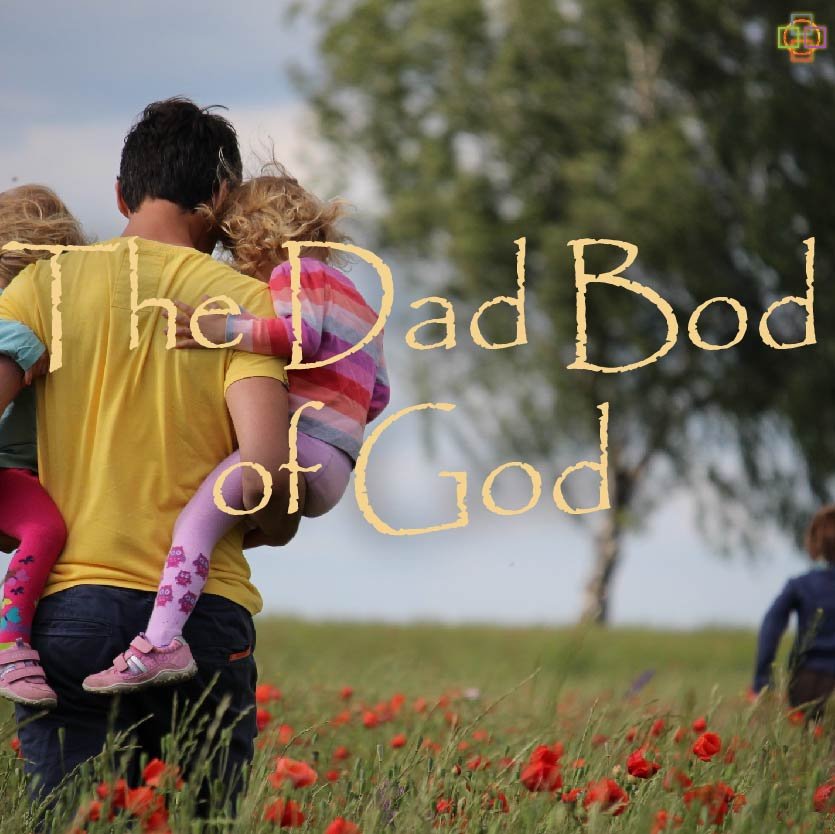
The Dad Bod of God
For Fathers’ Day it may seem a little strange to highlight a quote from Christ that says not to call anyone on earth “father,” but trust me – I have my reasons! That sounds like something a father would say, doesn’t it? Jokes aside, I believe it’s true, all truly fatherly attributes are from the Divine Parent, our Heavenly Father known by many names. And the aspects of each of us that can be called “fatherly” are not of this world either but are sourced from above. And so, he’s right, in a true sense no one on earth can be called father as it is our Divine light and the Divine workings of Providence and Life that make anyone even an earthly dad. It is the aspect of us not “on earth” that is the root of our parenthood, the core of life that we call angelic, heaven, Divine, and God. This means that when we call our fathers “father” in this world, we would do well to remember that the fatherly light is from the One Divinity known by many names, and that any true fatherhood is the Lord made manifest, just as it is with our mothers.
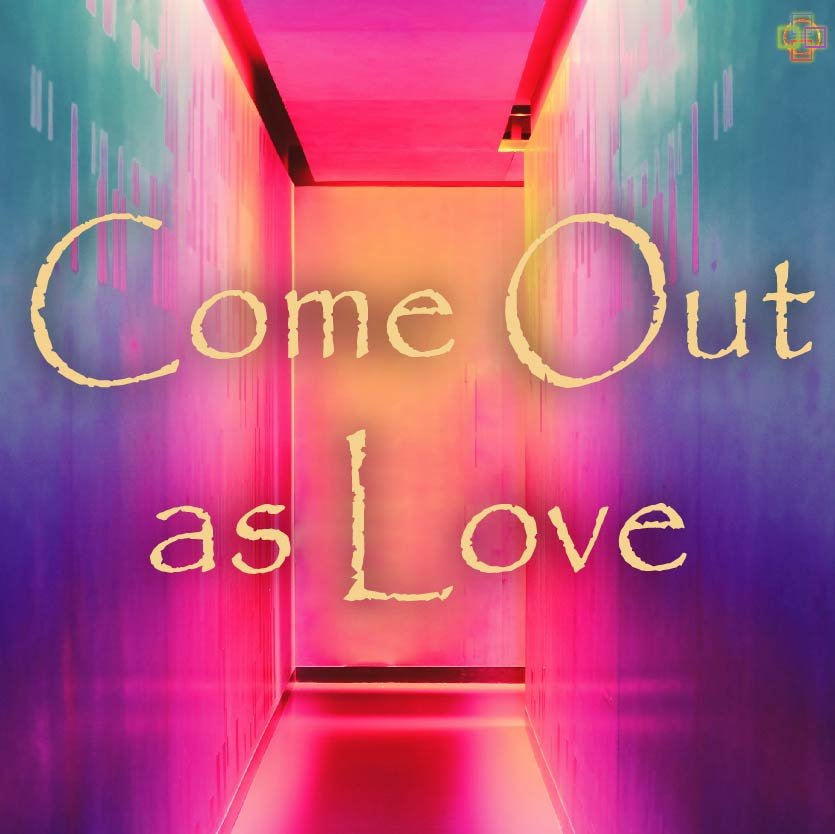
Come Out as Love
It can be illuminating to remember that the Bible says that Christ was largely debated among his people even when he was there and doing miracles, and those scriptures describe how even his brothers didn’t believe him. We see this throughout history when awakened beings speak from the truth of their God-consciousness, and even those closest to each of us don’t always seem to understand our spiritual perspectives. In our reading today, we also hear about how his brothers encouraged him to come out to the festivals to present himself and his ministry more publicly because, “No one who wants to become a public figure acts in secret.” Christ was presented with a plight that many know, especially those who are 2SLGBTQI+, where he felt the need to keep his love and his light private because society wasn’t ready for it, and he wasn’t ready for the persecution that history tells us came. Like with many 2SLGBTQI+ folks, through his misgivings, Christ decided to come out and share himself through his communal engagement and activism, and during the festival entered the temple to teach. And also like many queer folks, the crowds were astonished at his insight and wisdom, finding that they had much to learn from his heart of love.
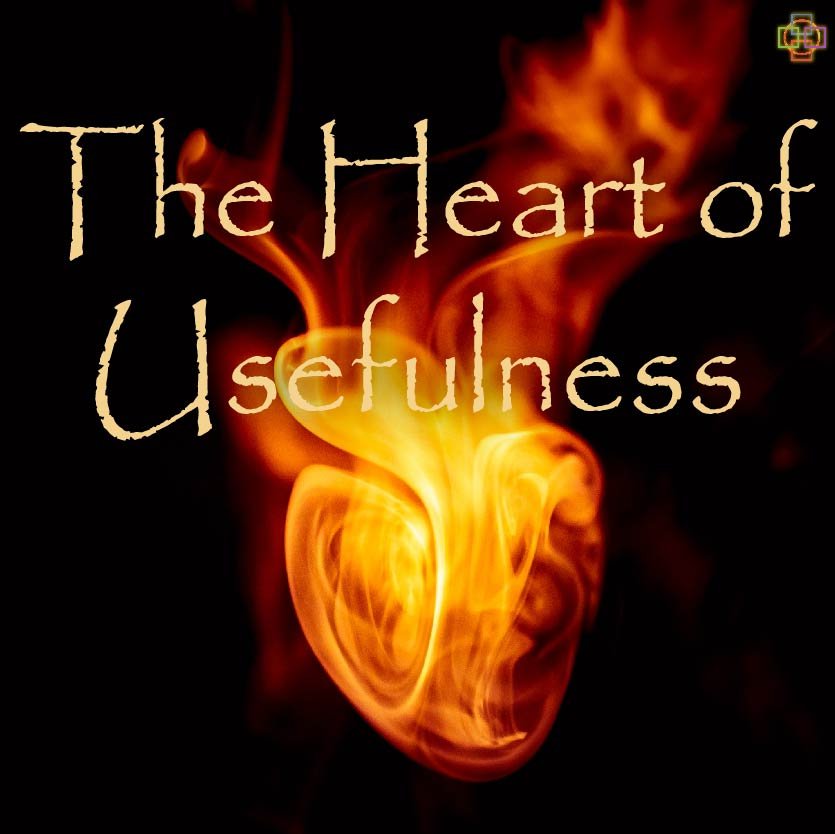
The Heart of Usefulness
The heart of usefulness is the heart of love that beats within each of our spirits: the heart of the universe, the infinite Heart of God that we all share. Within this heart all things rise, and so it is also called the light and warmth of consciousness. We’re told by sages that all things that arise must be used eventually for good, a truth often hard to fathom. That being said, the Lord has told us throughout the world religions that God desires good things for us, God points us within to the peace, love, and joy that God is (whatever we call God), and promises that Divinity will eventually bring all beings into knowing itself. Finding this core of Life within is the ultimate purpose of life, according to the sage Emanuel Swedenborg, as well as many others. This means that all things in life are ultimately useful to the extent that they support people’s awakening to the Great Spirit within themselves and all things; as it’s said Christ said, “I am the way, the truth, and the life,” or, in other words, “I AM is the way, the truth, and the life.” In that way, for us our supreme usefulness is initially just coming to know our own true heart.
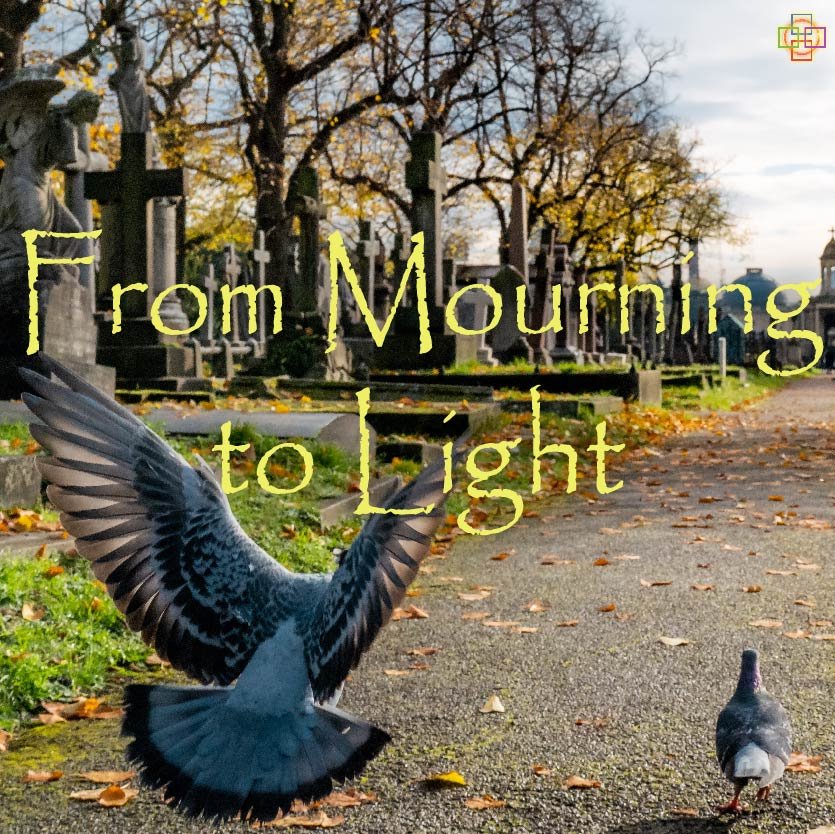
From Mourning to Light
The Lord (known by many names throughout many traditions) has blessed us in amazing ways, and yet, we often can’t seem to escape our troubles, the issues confronting our lives. In a way, our troubles can be an opportunity and a type of blessing, as Jesus said, “Blessed are the poor in spirit, for theirs is the kingdom of heaven. Blessed are those who mourn, for they will be comforted.” But how can we come to see it that way? We each will have our own interpretation of this, but my tact is to see that the problems that keep us in a sense of anxiety and discomfort can call on us to transcend. Yes, to sometimes transcend the problem by helping to resolve it, but especially by allowing the thoughts that hound us to remind us of the greater space of peace within. The toughness of a situation can help remind us in our mourning or desperation of the spaciousness of what we are, the light of God that Christ describes us as. Sometimes it’s only through grief and our mourning that we find that the peace of heaven within is beckoning us toward a greater acceptance of the Prince of Peace, the God known throughout cultures at the heart of our experience.
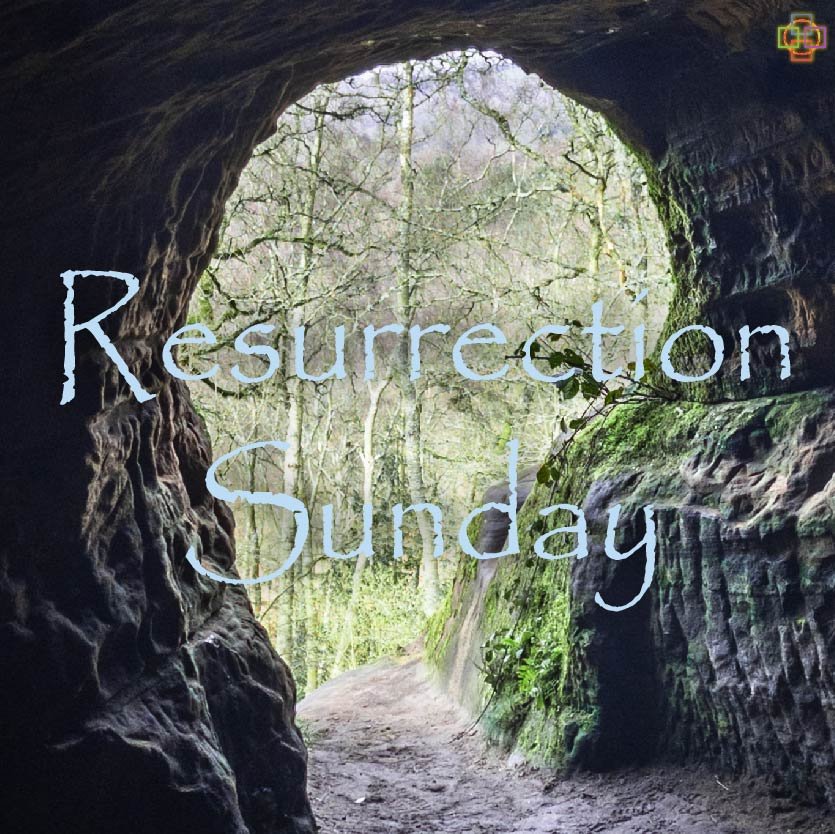
Resurrection Sunday
Easter is quite the celebratory and important time for those who celebrate it, yet some say that certain aspects of the Easter holiday were stolen from “pagans,” but what is paganism and what does it mean to steal a holiday? Traditions have borrowed from each other since time immemorial, and humans tend to celebrate at certain times of the year – often for good reason! Perhaps, the historically Christian-used pejorative “pagan” is behind these oft-repeated assertions – people are pointing out that Christianity is connected to and shares roots in the past, pre-Christ, in both Judaism and other traditions and practices, even though Christianity has often tried to distance itself from them. However, funny enough, Easter may be one of the least “holiday-borrowing” of Christian traditions, as even the use of the bunny and the egg can be traced back to specific Christian groups in the centuries after Christ’s death coming up with their own relatively unique ways to celebrate a holiday that was originally celebrated at the time of the Jewish Passover by Christianity’s earliest followers, who identified as Jews. Many Easter practices share a common thread, however, which is their shared symbolism of rebirth, renewal, and resurrection – something that Christianity further shares with many other traditions’ symbolic practices, highlighting the importance of spiritual renewal and our rebirth in the God at the core of our being across cultures and ages.
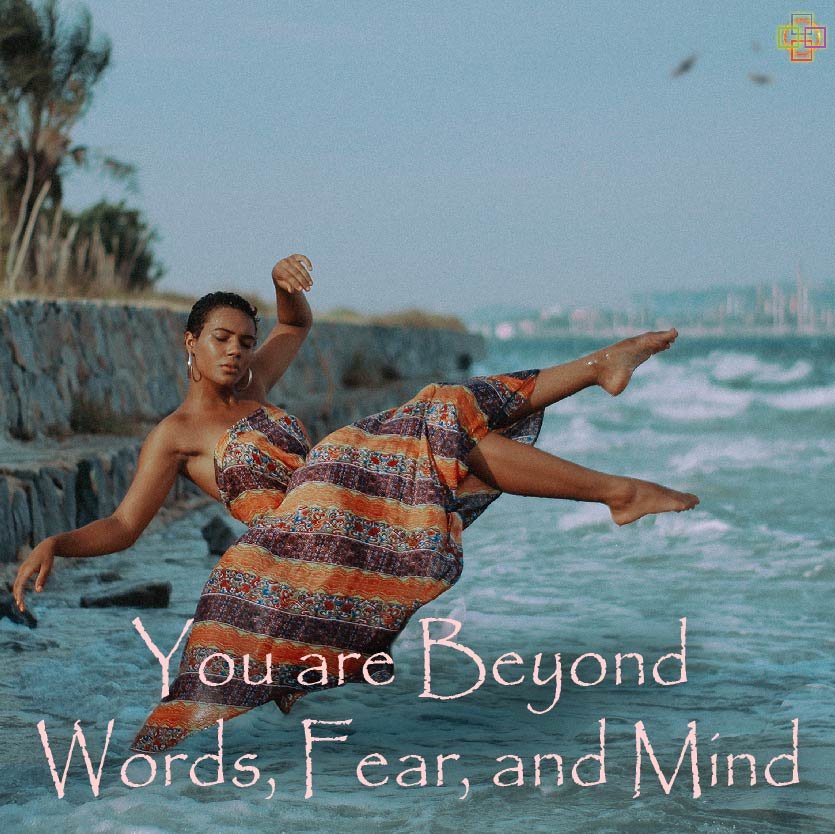
You are Beyond Words, Fear, and Mind
We tend to think that we know what to do, what’s best, in any given situation – but what if I said that the mind that thinks it knows best and has so many opinions is diametrically opposed to your sense of peace and what many call the will of the Universe, or God’s will? When we have a sense of understanding it is a moment of relative peace and quietude, an appreciation for how things already are. Noticing the peace that we are is just like this, it lacks the angst of our personal identity and judgment, and yet, these things can arise to it. We only tend to miss God’s peace because we overlook it in its humility, as it is our very own spaciousness and light.

Allow Yourself to be Lifted by Your Greater Nature
We often hear Jesus’ words, “Do this and you will live,” and take it as a future promise. But like many sages across traditions, he was speaking actively – that we can truly live today if we love our neighbours and love Divinity with everything we have. How do we love both God (or whatever you want to call the Creator Spirit) with everything, as well as love our neighbours? Sometimes it takes quite a bit of strength and patience to love our neighbours! Well, this hinges on what the scriptures mean by “neighbour” (and “God”) and if there actually is a separation between Divinity and the reality of who and what our “neighbours” are. Perhaps these are also synonymous with finding the naturalness of life, what some call finding regeneration, resurrection, and rebirth, escaping our enslavement to the machinations of the superficial social and personal pressures around and within us.



